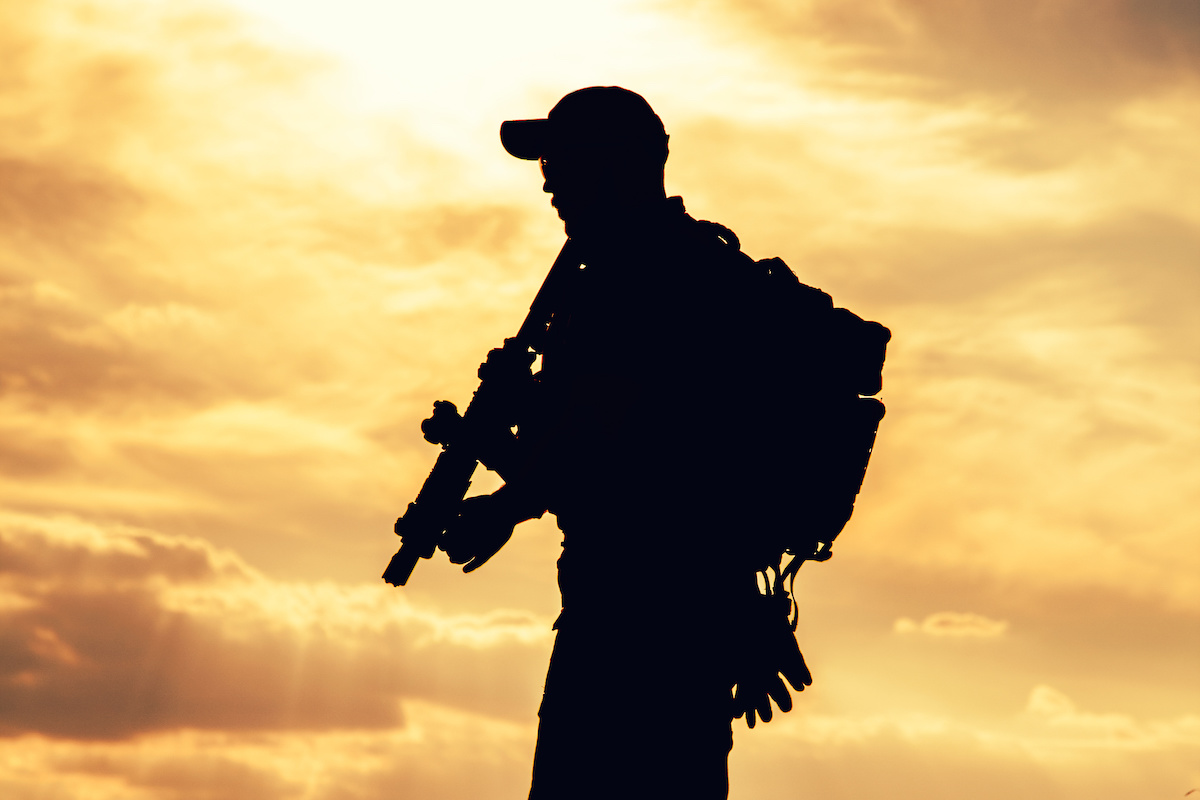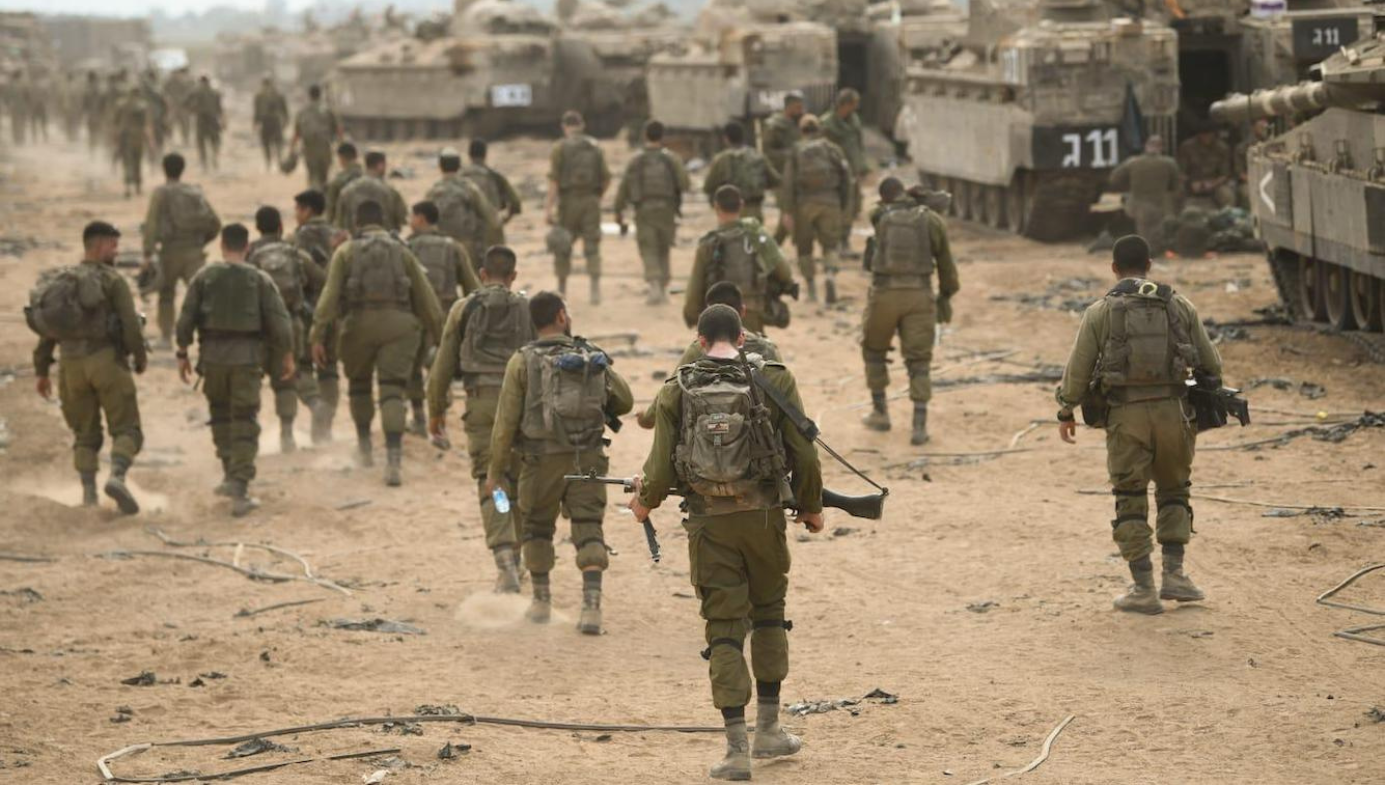Security
Private Military Contracting Is Misunderstood
Like all competitive industries, contracting evolved and became heavily corporate in nature, leaving the cowboy conduct behind in 2006, but retaining the cowboy image for sex appeal.

When I tell someone I used to be a security contractor, they almost always reply: “Oh you mean like those Blackwater guys?” I immediately have to dispel the myths and negative connotations associated with the private security industry. No, I do not work for and never have worked for Blackwater. I have, however, worked for Constellis, the company that purchased their successor, Academi. My very first contract was with the Department of Defense, fresh out of a standard Marine Corps career of four years—this time I could grow my hair slightly longer.
After six months spent working for the Constellis corporate monolith, I decided to leave for another contract with a company that had been around just as long as Blackwater but with a more innocuous name—SOC. Constellis was my first taste of corporate employment: power points, rosters, emailing permissions, time sheets, supervisors for supervisors, positions in the company that were unicorn-like in their purpose. The Marine Corps prepares you for life in a bureaucracy, but its allure as a war fighting organization is able to temporarily conceal the reality of endless rosters and signatures in black versus blue ink.
Today these contracting companies are a far cry from the images of the 21st century Vikings of the global war on terror that emerged during the heat of the insurgency in Iraq. Blackwater, founded in 1997 by former Navy SEAL turned entrepreneur Erik Prince, entered public consciousness in 2004 when four of its contractors were killed while they were delivering food in Fallujah, Iraq. Their bodies were burned and hung from a bridge prompting a coalition offensive later known as the First Battle of Fallujah.
Later that same year, Blackwater contractors participated in the battle for Najaf against the Mahdi army of Shia cleric Muqtada Al Sadr. Videos from multiple sources during the fighting presented the world with ball-cap and t-shirt clad men riding into battle on small black helicopters to prevent one of the strongest militias in Iraq from overrunning the city. That day, contractors ferried the wounded and ammunition back and forth while snipers suppressed insurgents from the rooftops alongside American troops. The action was extensively documented by the military, press, and the contractors themselves. With the world able to watch the highlights of this new asymmetric warfare online, “private military contracting” became an object of fascination.
By the time I arrived, the party was over. The intrepid new warriors of the Internet era were now perceived as sinister “shadow armies” staffed by “shadow soldiers.” The incident that catalyzed this new perception and a consequent overhaul in the nature of private military contracting occurred on September 16, 2007 in Nisour Square, Baghdad. Seventeen Iraqis were killed that day in what came to be known as the Nisour Square Massacre, and the incident has been the subject of at least five investigations which led to trials of the contractors involved. Blackwater was banned from operating in Iraq, and in 2008 a Status of Forces Agreement (SOFA) was signed between the US and Iraq allowing for Iraq to prosecute contractors in certain circumstances.
Since the Nisour Square massacre, the legality of and liability for the use of force in a war zone by contractors has been opaque. Contractors today use the phrase “chicken or beef” to refer to any incident that will result in an individual being sent home so quickly that the choice of in-flight meal is the only decision in which they’ll be given a say. Protocol stipulates that force may be used in the defense of your life or the lives of other Americans in your care, and escalated in proportion to the threat presented.

It is after force is used that things become a wilderness of potential legal action, multiple levels of investigation, and agreements with the host nation. In the popular imagination, private military contractors operate with impunity but this was only ever partially true and during a narrow window of time. Today, if a contractor is involved in a use of force incident—justified or not—they will be investigated. The potential consequences include being blacklisted from further contracts, a civil lawsuit, and life in jail.
Since 2008, only a handful of known shooting incidents involving US contractors have occurred, the most well-known of which was during the 2012 terror attack on the diplomatic annex in Benghazi, Libya. Benghazi was another watershed moment in contracting in which a terrorist attack left four Americans dead, two of whom were security contractors. Amid the civil war in Libya, a group of State Department and CIA contractors repelled attacks from jihadist militants on the 11th anniversary of 9-11. Greatly outnumbered, the contractors held their ground until American personnel could be evacuated. This event is portrayed in Michael Bay’s 2016 film 13 Hours: The Secret Soldiers of Benghazi, which dramatizes the Global Response Service contractors’ response to the attacks.
13 Hours offers an image of private military contractors that only Hollywood could create—bearded, muscle-bound, tattooed, laconic mercenaries, infatuated with historic military orders (Spartans, Crusaders, Legionnaires and so on). In reality, the contracting population is as diverse as that which comprises the military. Some contractors opt out of the “vet beard” due to habit, or the novelty wearing off. Most of us work out because our occupation relies on physicality, and the philosophy of fitness is a cornerstone of soldiering. But reveling in martial culture isn’t for everyone, and most of us just want to collect our check and go home. The diversity of skillsets, interests and education among the people I’ve worked with is unparalleled. We have people who can fly planes, perform emergency surgeries, speak all manner of languages, salvage dive with sharks, navigate using the stars, brew beer, write a thesis on neoclassical art, climb up sheer rock cliffs, 3D print anything, fly drones, write a dissertation on Nietzsche, or play the banjo—there is someone for everything you might encounter while out on the frontier of modern warfare.
The environment in which security contractors operate provides fertile ground for self-development. As many static contractors work a shift of eight to 12 hours, the rest of your day is left for you to use as you see fit. Those working on the mobile side of executive protection might go days without a mission in some instances. The amount of downtime over a combined 18-month period overseas enabled me to read collections of books and articles and log days’ worth of podcasts and YouTube tutorials. The countless seasons of television we watched, the hours of video game play, and the time spent on social media would qualify as addictions. Your time is what you make of it. Many get their degrees or other certificates and move on from the industry into other ventures.
Some of my former colleagues have been contracting since 2005, and none have been involved in a use of force incident on the job. While statistical data on use of force incidents by contractors is not collected, the speed at which news travels within the industry makes these events seem exceedingly rare and heavily discussed when they do occur. Those who have worked in law enforcement prior to contracting tend to agree that the chances of being involved in a use of force incident is higher in the United States than it is overseas. In the state of California, for example, which has some of the strictest gun legislation in the country, there were 707 use of force incidents involving law enforcement in the year 2017 alone, 353 of which resulted in the use of a firearm. In other words, it is more likely that you will discharge your weapon in the United States as a police officer than if you are working as a contractor in a war zone overseas.
While misconceptions about what security contractors do persist, the industry is on track to expand and assume more roles as American foreign policy takes a less direct approach to armed conflict. Since his election in 2016, President Trump has weighed the idea of implementing contractors further in these conflicts while withdrawing troops. The number of contractors in Afghanistan has increased by 65 percent since the beginning of the Trump Administration. Granted, not all those positions are security-related but it is a sign of the possible further privatization of various theaters in the global war on terror. Former Blackwater founder Erik Prince returned to public consciousness when he was questioned during Robert Mueller’s investigation about a meeting with Russian officials in the Seychelles Islands off the coast of Africa. Prince had recently proposed the idea of backing Venezuelan opposition leader Juan Guaido with 5,000 soldiers against the Maduro regime, according to Reuters.
Like all competitive industries, contracting evolved and became heavily corporate in nature, leaving the cowboy conduct behind in 2006, but retaining the cowboy image for sex appeal. There are differences in terms of regulations, responsibilities, equipment, salary, amenities, and a small amount of prestige between a contract with the Department of Defense, Department of State, or other government agencies. Apart from an incredibly small community of contractors serving in a direct-action capacity, most fill a position afflicted by the kind of monotony found in any other salaried job. They do not wander the streets of Iraq or the mountains of Afghanistan getting into nonstop gun battles, as some perceive. Their purpose is to ensure that those responsible for implementing foreign policy can do so safely. Most just see this as the best paying employment available with the skills acquired in nearly two decades of war. Regardless of the administration in charge, they know that their employment is secure with the likelihood of these conflicts ending being remote.






